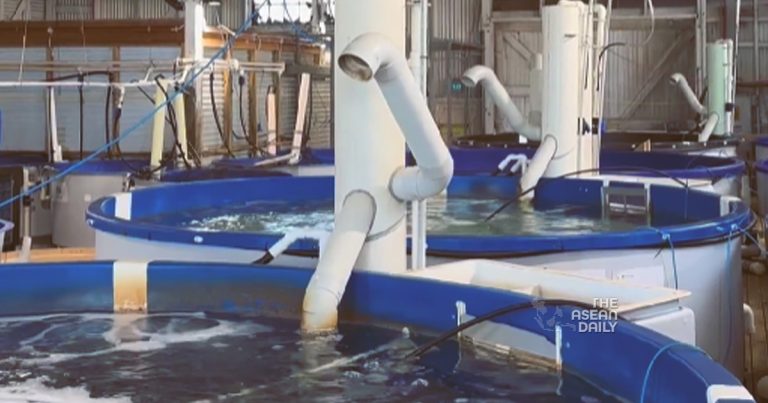17-7-2023 (SINGAPORE) A delegation from Singapore, including representatives from the Singapore Food Agency (SFA) and the Ministry of Sustainability and the Environment, recently visited southern and western Australia to learn about sustainable aquaculture practices. Led by Senior Minister of State for Sustainability and the Environment, Koh Poh Koon, the delegation sought to boost Singapore’s food security by exploring ways to enhance the country’s nascent aquaculture sector.
One of the highlights of the visit was a tour of Clean Seas Seafood’s operations in the Spencer Gulf, off the coast of Port Lincoln, South Australia. Clean Seas Seafood is the largest supplier of yellowtail kingfish outside of Japan, producing approximately 3,500 tonnes per year, which accounts for nearly 80 percent of Singapore’s local seafood production in 2022.
The successful coexistence of aquaculture and marine animals was evident in the Spencer Gulf. While observing the sea cages holding farmed yellowtail kingfish, the delegation witnessed dolphins swimming nearby and Australian sea lions and seals enjoying their natural habitat on a nearby rocky islet. Clean Seas Seafood employs high tensile nets to limit predators’ access to the farmed fish, and closely monitors the health of nearby seagrass meadows to ensure minimal environmental impact.
In Australia, considerable resources and investments are dedicated to rearing fish in a responsible manner to prevent diseases and deaths. Clean Seas Seafood, for example, ensures the best start in life for its yellowtail kingfish. Juveniles weighing 40 grams are transported from their nursery on land to the sea cages via helicopter, providing a less disruptive and logistically smoother process compared to using lorries and ships.
One of the key challenges in marine fish farming is the hatchery stage, where expertise and substantial investments are required. To address this, the delegation visited Western Australia’s Department of Primary Industries and Regional Development, which has established a state-of-the-art hatchery facility. The hatchery supplies barramundi juveniles to commercial farms and conducts research on breeding, nutrition, and disease resistance of yellowtail kingfish. The delegation noted the importance of government support in establishing hatcheries and supplying fish fry and juveniles to smaller farms, allowing them to focus on optimizing their farming methods.
Another area of interest was the use of seaweed to clean the waters near fish farms. Seaweed absorbs nutrients such as nitrates and phosphorus, thereby improving water quality. The waters off South Australia host a wide variety of seaweed species, and the state’s Department of Primary Industries and Regions has granted over 50 licenses for seaweed cultivation. Seaweed cultivation not only cleans the waters but also offers opportunities for higher-value products. For instance, a Port Lincoln tuna company has collaborated with a research arm to produce liquid fertilizer and extract valuable protein pigment from red seaweed.
The Singapore delegation expressed enthusiasm for the potential of seaweed cultivation in cleaning waters and increasing fish yields. They also raised questions about the impact on other habitats, such as coral reefs, and the feasibility of implementing nutrient credit mechanisms to incentivize aquaculture companies to reduce their nutrient footprint.
The visit to Australia provided valuable insights into best practices in aquaculture, emphasizing the importance of environmental sustainability. Singapore aims to leverage these learnings to further develop its own aquaculture sector and enhance its food security efforts.




